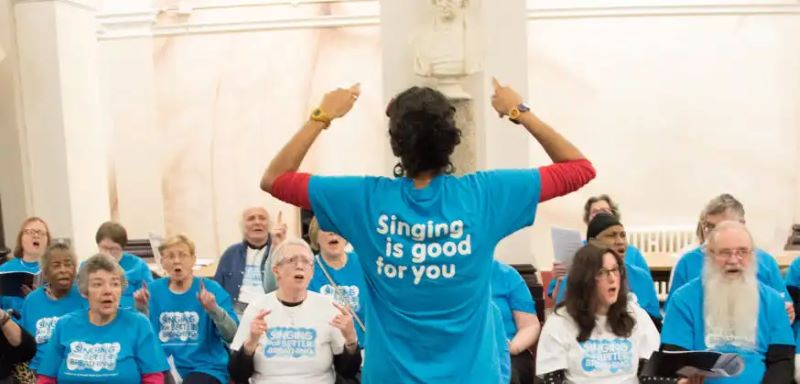On World Parkinson’s Day Professor Angela Pickard explains how the University is supporting research into health and wellbeing to show the benefits of creative and performing arts.
Parkinson’s Disease (PD) is one of the fastest growing neurodegenerative disorders affecting more than 10 million people worldwide, and this number is expected to double over the next 20 years.
It affects quality of life and includes a variable combination of motor and non-motor symptoms, causing severe impairment in the functional autonomy, and this can lead to mobility and stability (balance) and body weight-transfer or shifting difficulties. Symptoms of PD can also include tremors, rigidity of muscles, sluggish movement, and postural instability, and this can contribute to falls and to fall-related injuries. PD can also be associated with mental health issues such as anxiety, low mood, depression and cognitive impairment.
The Sidney De Haan Research Centre for Arts and Health is committed to researching ways in which participation in creative and performing arts can contribute to and enhance health and wellbeing for individuals and communities, including healthy ageing.
Dance can be beneficial for people with PD in a number of different ways such as supporting posture, core stability, balance, weight-shifting and co-ordination. Engaging with music through, for example, keeping a rhythm, can also support co-ordination and control.
A recent study by Zhou et al (2021) involving almost 600 participants concluded that music-based movement therapy is an effective treatment for motor function, balance, and walking speed of people living with PD. Rhythmic auditory stimulation can improve walking speed and increases the length of each stride in PD patients. Further, dance to and with music can be a fun, social activity and group community sessions can impact on positive mood and overall feeling of wellbeing. This is important because ‘while living with Parkinson’s is challenging, one thing stands out: you’re not alone’.
Dance and music can play an important role as a non-pharmacological intervention, as part of social prescribing, to improve quality of life for those living with Parkinson’s.
Angela Pickard is Professor of Dance Education and Director of the Sidney De Haan Research Centre for Arts and Health.
 Expert comment
Expert comment Jeanette Earl
Jeanette Earl 1934
1934


